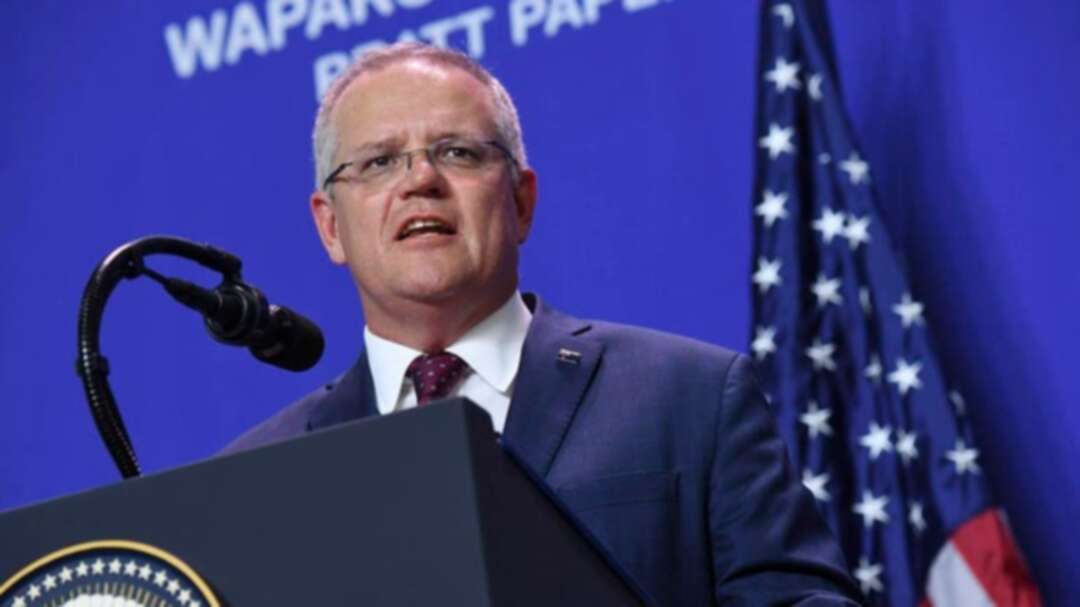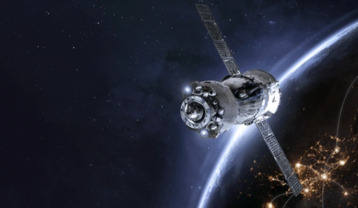-
Australia PM joins Trump calling for China to drop ‘developing economy’ status

Global trade rules are “no longer fit for purpose” and must be changed to accommodate China’s new status as a developed economy, Australian Prime Minister Scott Morrison said in a major foreign policy speech in the United States.
The global community had engaged with China to help it grow but now must demand the world’s second-largest economy bring more transparency to its trade relationships and take a greater share of the responsibilty for addressing climate change, Morrison said.
“The world’s global institutions must adjust their settings for China, in recognition of this new status,” said Morrison in a speech to the Chicago Council on Global Affairs, referring to China as a “newly developed economy”.
“That means more will be expected of course, as has always been the case for nations like the United States who’ve always had this standing,” Morrison said in the speech, according to transcript provided to Reuters.
Global trade rules were “no longer fit for purpose” and in some cases were “designed for a completely different economy in another era, one that simply doesn’t exist any more”, he added.
Referring to China as a newly developed economy marks a change from Beijing’s self-declared status as a developing economy, which affords it concessions such as longer times to implement agreed commitments, according to the World Trade Organization (WTO).
It also puts Australia into line with a campaign led by US President Donald Trump to remove China’s developing nation status. In an April 7, 2018 tweet, Trump wrote that China was a “great economic power” but received “tremendous perks and advantages, especially over the US.”
Morrison has previously urged China to reform its economy and end a trade war with the United States but has until now stopped short of taking a public position on its WTO status.
While two-way trade between Australia and China has grown since the countries signed a trade pact in 2015, increasing to a record A$183 billion ($127 billion) last year, the bilateral relationship has at times been strained.
In December 2017, former Australian prime minister Malcolm Turnbull accused China of meddling in its domestic affairs. The relationship was further soured by Canberra’s decision last year to effectively ban Chinese telecoms firm Huawei Technologies from its 5G broadband network rollout.
Morrison said Australia and the United States had different relationships with China, given Australia had a trade surplus with China while the United States had a trade deficit.
“The engagement with China has been enormously beneficial to our country,” he said. “We want to see that continue.”
You May Also Like
Popular Posts
Caricature
BENEFIT Sponsors BuildHer...
- April 23, 2025
BENEFIT, the Kingdom’s innovator and leading company in Fintech and electronic financial transactions service, has sponsored the BuildHer CityHack 2025 Hackathon, a two-day event spearheaded by the College of Engineering and Technology at the Royal University for Women (RUW).
Aimed at secondary school students, the event brought together a distinguished group of academic professionals and technology experts to mentor and inspire young participants.
More than 100 high school students from across the Kingdom of Bahrain took part in the hackathon, which featured an intensive programme of training workshops and hands-on sessions. These activities were tailored to enhance participants’ critical thinking, collaborative problem-solving, and team-building capabilities, while also encouraging the development of practical and sustainable solutions to contemporary challenges using modern technological tools.
BENEFIT’s Chief Executive Mr. Abdulwahed AlJanahi, commented: “Our support for this educational hackathon reflects our long-term strategic vision to nurture the talents of emerging national youth and empower the next generation of accomplished female leaders in technology. By fostering creativity and innovation, we aim to contribute meaningfully to Bahrain’s comprehensive development goals and align with the aspirations outlined in the Kingdom’s Vision 2030—an ambition in which BENEFIT plays a central role.”
Professor Riyadh Yousif Hamzah, President of the Royal University for Women, commented: “This initiative reflects our commitment to advancing women in STEM fields. We're cultivating a generation of creative, solution-driven female leaders who will drive national development. Our partnership with BENEFIT exemplifies the powerful synergy between academia and private sector in supporting educational innovation.”
Hanan Abdulla Hasan, Senior Manager, PR & Communication at BENEFIT, said: “We are honoured to collaborate with RUW in supporting this remarkable technology-focused event. It highlights our commitment to social responsibility, and our ongoing efforts to enhance the digital and innovation capabilities of young Bahraini women and foster their ability to harness technological tools in the service of a smarter, more sustainable future.”
For his part, Dr. Humam ElAgha, Acting Dean of the College of Engineering and Technology at the University, said: “BuildHer CityHack 2025 embodies our hands-on approach to education. By tackling real-world problems through creative thinking and sustainable solutions, we're preparing women to thrive in the knowledge economy – a cornerstone of the University's vision.”
opinion
Report
ads
Newsletter
Subscribe to our mailing list to get the new updates!






















